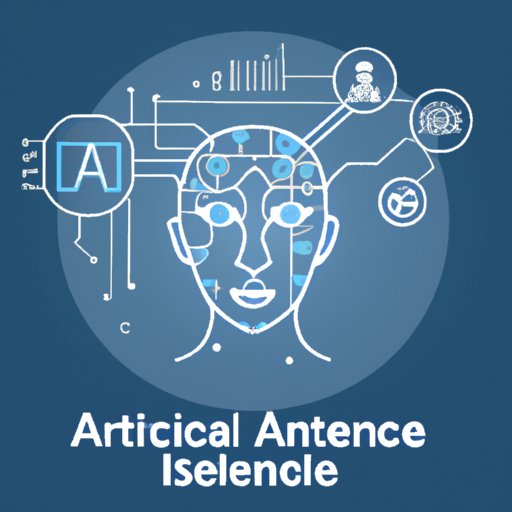Introduction
Artificial intelligence (AI) is a rapidly advancing technology that has the potential to revolutionize our lives. In its simplest form, AI is defined as “the capacity of a computer or machine to imitate intelligent human behavior” (Merriam-Webster, 2020). As AI continues to develop, it will have far-reaching implications for every aspect of our lives, from the way we work and live to the way we interact with each other. In this article, we will explore the potential impacts of AI on society and examine how it could change the future.
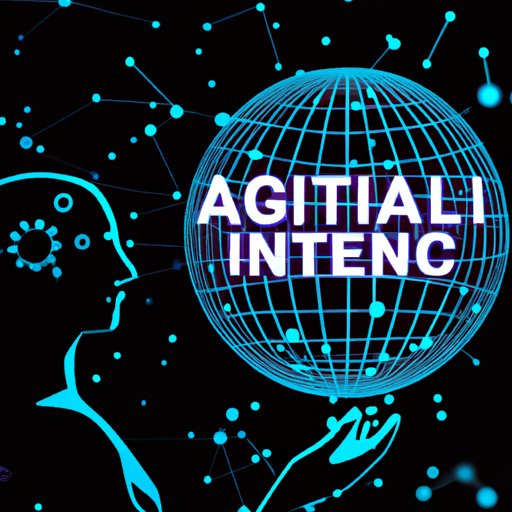
Exploring the Potential Impacts of Artificial Intelligence on Society
The potential impacts of AI on society are wide-ranging and complex. AI has the potential to disrupt the job market and the economy, revolutionize healthcare, and create new security risks. Let’s take a closer look at some of the ways AI could shape our future.
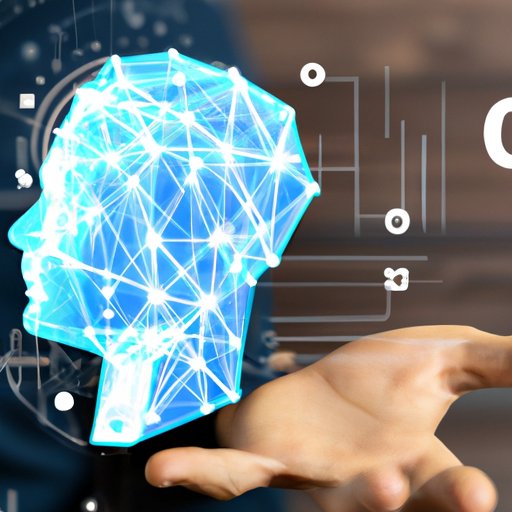
Impact of AI on Jobs and the Economy
One of the most significant impacts of AI on society is the potential disruption of the job market. Automation and robotics are increasingly being used to replace human labor, leading to job loss in many industries. According to a study by McKinsey Global Institute, up to 800 million jobs worldwide could be lost to automation by 2030. This could lead to increased unemployment and income inequality, as well as social unrest.
On the other hand, AI also has the potential to create new jobs and boost economic growth. According to a report by the World Economic Forum, AI could add up to $13 trillion to the global economy by 2030. This could create new opportunities for businesses, as well as millions of new jobs in fields such as data science, AI development, and cybersecurity.
Benefits of AI in Healthcare
AI is also having a transformative impact on healthcare. AI-powered technologies such as machine learning, natural language processing, and computer vision are being used to improve diagnoses and treatments, and to enhance access to care. For example, AI-driven image analysis can be used to detect anomalies in medical images more quickly and accurately than humans, allowing doctors to make more informed decisions about diagnosis and treatment. AI can also be used to monitor patients remotely, providing real-time data on their health status.
Security Risks Posed by AI
While there are many potential benefits of AI, there are also some security risks associated with its use. Data privacy issues are a major concern, as AI systems collect and store large amounts of sensitive personal data. This data can be vulnerable to hackers, putting people at risk of identity theft and other cybercrimes. AI can also be used to create autonomous weapons systems, raising ethical and legal questions about their use.
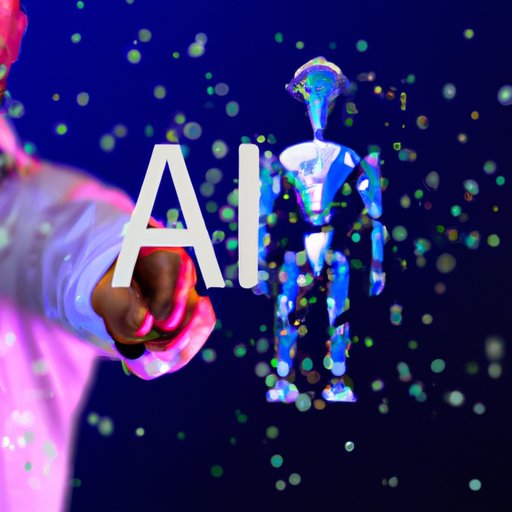
Examining the Impact of AI on Jobs and the Economy
As mentioned earlier, AI has the potential to significantly disrupt the job market. Automation and robotics are increasingly being used to replace human labor in many industries, leading to job losses. According to a report by the Congressional Budget Office, up to 25 percent of jobs in the United States could be replaced by automation by 2030. This could lead to increased unemployment and social unrest.
However, AI also has the potential to create new jobs and boost economic growth. According to a study by McKinsey Global Institute, AI could create up to 133 million new jobs worldwide by 2030. This could provide opportunities for businesses, as well as millions of new jobs in fields such as data science, AI development, and cybersecurity.
Analyzing the Potential Benefits of AI in Healthcare
AI has the potential to revolutionize healthcare by improving diagnoses and treatments, and by enhancing access to care. AI-driven technologies such as machine learning, natural language processing, and computer vision are being used to develop more effective and accurate diagnostic tools. For example, AI-powered image analysis can detect anomalies in medical images more quickly and accurately than humans, allowing doctors to make more informed decisions about diagnosis and treatment.
AI can also be used to monitor patients remotely, providing real-time data on their health status. This could be especially beneficial for patients with chronic illnesses, as it would enable them to receive regular check-ups without having to leave their homes. Additionally, AI-powered chatbots can be used to provide 24/7 patient support, answering questions and providing advice.
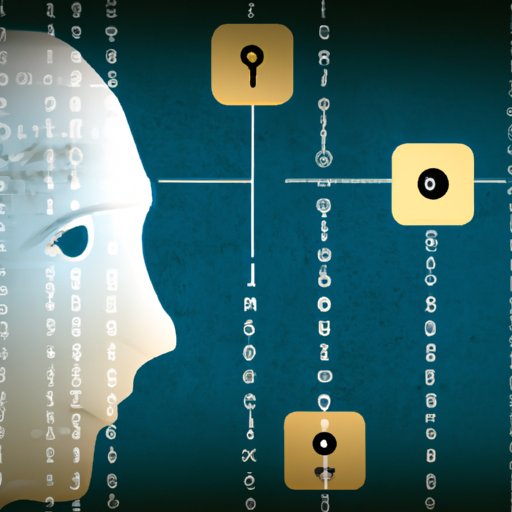
Investigating the Security Risks Posed by AI
While AI has the potential to offer many benefits, there are also some security risks associated with its use. Data privacy issues are a major concern, as AI systems collect and store large amounts of sensitive personal data. This data can be vulnerable to hackers, putting people at risk of identity theft and other cybercrimes.
AI can also be used to create autonomous weapons systems, raising ethical and legal questions about their use. Autonomous weapons systems such as drones and robots can act independently, with no human input. This raises concerns about accountability and safety, as well as moral and legal considerations.
Looking at the Ethical Implications of AI Development
The development of AI raises a number of ethical questions, particularly when it comes to autonomous weapons systems. These systems can act independently, with no human input. This raises concerns about accountability and safety, as well as moral and legal considerations. For example, who should be held responsible if an autonomous weapon system causes harm? How should these systems be regulated?
In addition, AI development raises questions about the potential misuse of data. AI systems are increasingly being used to track and monitor people, raising concerns about privacy and surveillance. There is also a risk that AI could be used to manipulate and control people, which could lead to a loss of freedom and autonomy.
Conclusion
In conclusion, AI is a rapidly advancing technology that has the potential to revolutionize our lives. Its potential impacts on society are wide-ranging and complex, from the way we work and live to the way we interact with each other. AI has the potential to disrupt the job market and the economy, revolutionize healthcare, and create new security risks. It also raises a number of ethical questions, particularly when it comes to autonomous weapons systems. As AI continues to develop, it will have far-reaching implications for every aspect of our lives.
(Note: Is this article not meeting your expectations? Do you have knowledge or insights to share? Unlock new opportunities and expand your reach by joining our authors team. Click Registration to join us and share your expertise with our readers.)
